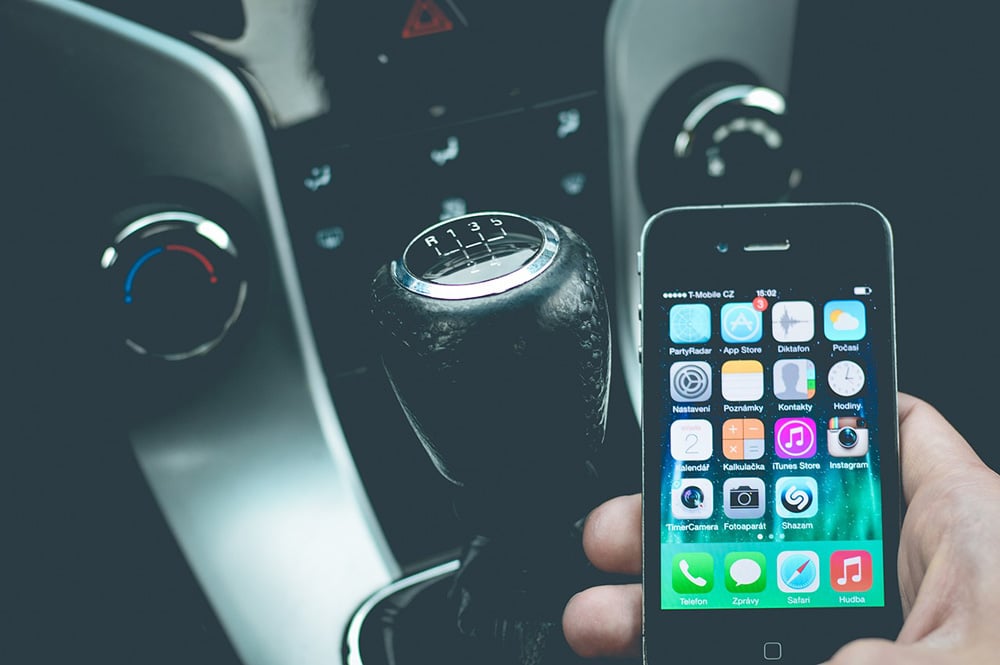Is Social Media a Contributing Factor in Car Accidents?
About 70% of the U.S. public uses some form of social media. In 2020, the average adult spent more than three hours a day on social media. Over 77% of employees admit to scrolling through social media during work hours. These numbers are thought to be even higher among people under 30.
Social media is an undeniable part of our modern lives. That raises the question of whether social media is a contributing factor in car accidents? There is no doubt that distracted driving is a major concern in the United States. It is becoming more and more obvious that the smartphones in our hands have a lot to do with rising distracted driving accident rates.
The injury attorneys from Krzak Rundio Gorman, Injury Attorneys look into social media use behind the wheel and how it impacts safe driving. If you were involved in a car accident caused by distracted driving, you may want to get in touch with a member of our team to discuss what legal options for recovery may be available to you.
Distracted Driving Statistics
It can be difficult to establish exact numbers when it comes to distracted driving accidents. Many drivers who use social media behind the wheel are not willing to admit their negligence to police officers, insurance companies, and car accident lawyers.
It’s safe to say that most people know that using social media while driving is dangerous. If an accident results, most people know it’s their fault. But not everyone is willing to own up to that responsibility.
Organizations like the National Highway Traffic Safety Administration (NHTSA) and the Centers for Disease Control and Prevention (CDC) publish information about the rates of known distraction-involved motor vehicle injuries and fatalities. While these numbers are likely lower than the actual number of accidents that involve a distraction like social media, we know that:
- Over 3,000 people died in distracted driving accidents in 2020.
- About nine people die every day in the United States in distracted driving accidents.
- Over 400,000 people are injured in distracted driving crashes every year.
How Does Social Media Use Affect Driving?
While a person may readily admit to social media use at work, they may be less likely to admit to scrolling through media posts while driving a car. After all, checking your friend’s latest story at your office desk isn’t going to cause great injury or death to anyone. But whether we admit it to ourselves or not, most of us know that using a handheld phone while driving poses a risk causing substantial injury or death —both our own lives and the lives of others.
Using social media while driving is a form of impaired driving. Just like drunk driving or texting and driving, a driver using social media is unable to safely perform necessary driving tasks. Impairment can take more than one form:
- Cognitive Impairment: When a driver is on social media, their mind is focused on the content on the screen, not on the conditions of the road. Cognitive impairment prevents a vehicle operator from intaking information that can help them drive safely (like the actions of other drivers, the changing speed limit, a light turning red, or a pedestrian running into the road). Drivers using social media have significantly slower reaction times—if they even see or recognize the obstacle at all.
- Visual Impairment: Visual impairment means the driver’s eyes are on the screen and not on the road. A rear-end collision is one of the most common consequences of visual impairment. A driver simply doesn’t see a car brake in front of them and slams into the back of the vehicle. Sadly, pedestrian death (especially among children) is another consequence of visual impairment. Taking your eyes off the road for five seconds at 55 mph is equivalent to driving the length of a football field with your eyes closed.
- Manual Impairment: Driving a car safely requires the use of both hands. This is impossible when one hand is holding a cell phone. You may feel perfectly safe and confident holding the wheel with one hand. But the fact is, your capabilities as a driver are diminished with only one hand on the wheel. If a situation arises that requires you to swerve or turn the wheel sharply, you will be at a severe disadvantage.
- Emotional Impairment: One of the lesser-discussed forms of impairment associated with social media use is emotional impairment. Social media apps affect our emotions. That’s why we use them so much. A funny video can make us laugh out loud. A touching post can bring tears to our eyes. An uplifting story can bring joy. A friend’s heartbreak or loss can make us want to reach out and comfort them. These are meaningful events. But they should never happen while operating a two-ton vehicle at speeds upwards of 70 mph.
Why Is Social Media Use While Driving So Common?
We know it is dangerous to scroll through social media while driving. Even if we aren’t actively engaging by posting or commenting, the risks are significant and indisputable. So why do U.S. drivers continue to use social media behind the wheel in such large numbers?
Part of the answer to that question lies in the psychology of social media. Multiple studies have shown that social media is addictive—in the same way that drugs and alcohol are. In the face of addiction, rational thinking becomes secondary.
- The Addiction Center now recognizes social media addiction as an “uncontrollable urge to log on to or use social media” to the point that it “impairs other important life areas.”
- A 2018 California State University study found that the rewards of social media (such as when someone likes your post) stimulate users’ brain pleasure in the same way that drug use does in addicts. The more one uses, the greater the need to continue using.
- Stanford psychiatrist Anna Lembke discussed the “druggification” of social connection through social media apps. She points to the unnaturally high levels of dopamine that social media releases in the human brain through continual novelty and reward, comparing the level to that released by alcohol or heroin.
- A Harvard University study identified social media use as an activity that strongly alters brain chemistry, leads to addictive behaviors, and decreases overall mental health.
Get Help After a Social Media-Involved Driving Accident
If you were injured because a motorist used social media while driving, we may be able to assist you in taking legal action. Personal injury law can help bring awareness to an issue that is endangering drivers, passengers, and pedestrians across the country.
When you hold a negligent driver accountable for their actions, you can help make sure they never make the same mistake again. Just like drinking and driving, this dangerous behavior needs to be addressed. If you suffered injury or the loss of a loved one, contact us today for a no cost initial consultation. An attorney from Krzak Rundio Gorman, Injury Attorneys is ready to hear your story.











